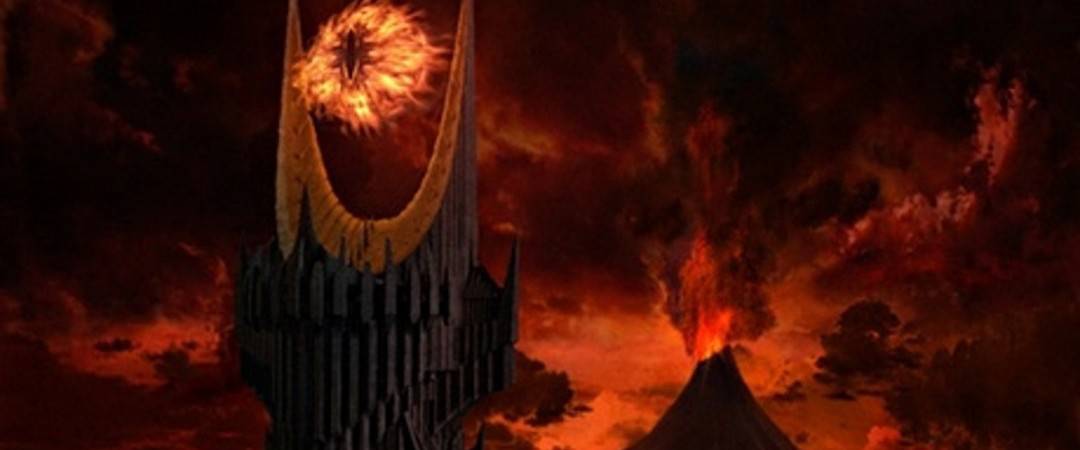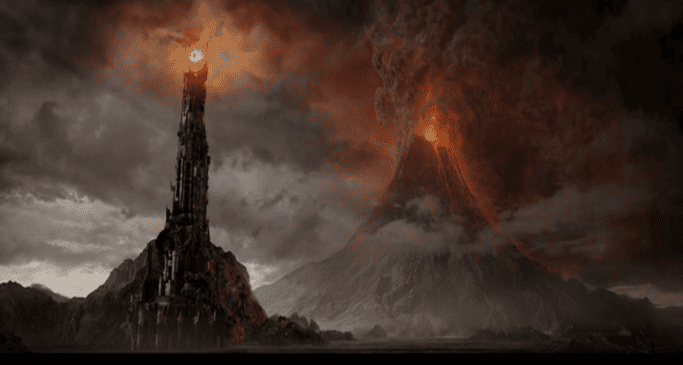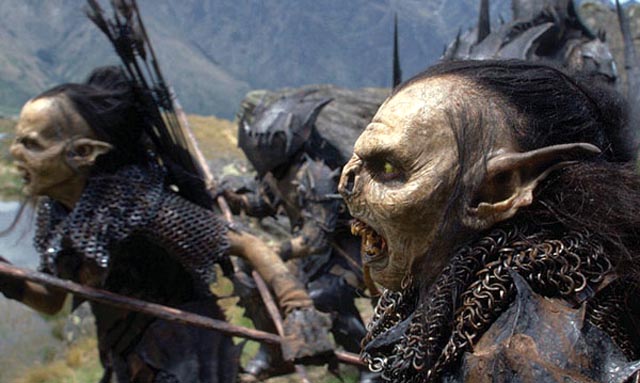
Evil is an odd bird. The definitions we find are as vast as the examples of it. Evil remains intangible. It exists as a blackness that hangs — threatening. We have dictators committing genocide, flaunting their love of slaughter. Our world is rotten with murderers and other violent criminals full of narcissistic nihilism and the adoration of control and gore, and we have no reason why.
The reality of evil is nonsensical and when we ourselves create fictitious evil, we struggle in our attempts at making sense of it. In a novel or a film, we see the villain commit acts that we recognize as truly horrific and wrong and it reads like what it is – senseless violence. As a culture we don’t have the answers or know the causes behind evil, so in our creations we attempt to work through the ways we can combat it and defeat it, and in this process we find hope and understanding of how to keep it from happening again.
When ‘The Lord of the Rings‘ films ruled the theaters they were each a triumph. Here was a film based on a large body of work that centered on the obvious struggle between good and evil, where good eventually wins, as it tends to do in Hollywood. J.R.R. Tolkien had a great understanding of how heroism works and to what extent mankind will go to maintain the good that does exist, but I don’t think Mr. Tolkien knew what to do with evil. Most of us don’t. In ‘The Lord of the Rings‘ we have Sauron, the main being of pure darkness and evil. He’s after the one ring to rule them all, but what was he hoping to do when he got it?
The answer — world domination.
Okay, but then what? You dominate the world by killing all of the creatures that didn’t bow down to you, and then what happens? In our creations of evil we toss a blanket of blood and fire and call that the point. Sauron goes to great lengths to destroy all in the way of getting to his main goal, which is to destroy what’s left that hasn’t quite been destroyed yet.
I never understood this generic goal of evil, this concept of world domination. What happens when the world is in fact dominated? I imagine all of the orcs and Sauron’s other forces in Mordor milling about with their everyday evil tasks, and I wonder, what do they care about making sure some distant village is evil too? This might be the main problem. If you are not evil, you can’t understand how or why it works.
There are films and other works out there that try to delve into the birth of evil and what propels it to exist in us, but these are usually small pieces about a serial killer or minor criminals that end in some “nature versus nurture” debate, and which one wins out depends on the author’s point of view.
Our representation of evil on a large scale shows our inability to explain this concept that gets repeated in the fiction we create. When evil isn’t initially after world domination it is after money and usually an obscene amount (minus Dr. Evil’s one million dollars) that if handed over would then in turn end up in world domination.
Perhaps this concept exists as a cliché because it is our biggest fear, even if we can’t quite explain what a villain would do with his new trophy of our dominated world.
Maybe movies are just movies and this concept of world domination is repeated because the author assumes it will scare us. It is the grandest example of evil; a blood soaked earth ruled by beasts. The writer, not knowing what goal to assign the villain, applies the title of “Greatest of all Evil” to the antagonist and hopes we understand. The good thing is that we don’t. Pure evil on that scale just doesn’t make sense. Why would you want to be in control of the entire world? Most of us don’t want it and wouldn’t know what to do with it or even where to start to get it. I know if I controlled the world I would be screwed. That’s a lot of work, and for what?
We know our history and can follow the path that evil takes, but the root cause of evilness is buried too deep to find it and depending on your own point of view, that can either be a blessing or a curse.


